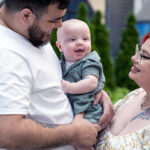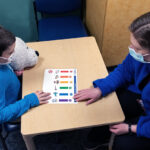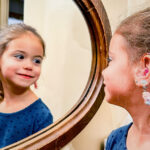How hearing aids opened up a world of sound for Harry
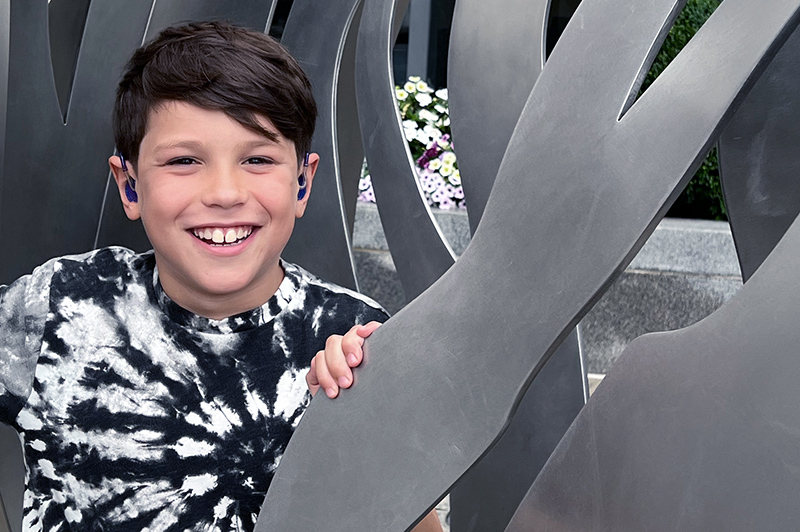
Maybe it’s unusual to bring a musical instrument to an audiology appointment, but that didn’t stop Harry King. When he picked up his new hearing aids from Boston Children’s Hospital, he brought his ukulele.
After a procedure to drain fluid from his middle ears the year before, Harry had become obsessed with sounds of all kinds — rain, the spoken word, and most importantly, music. “We called the hearing aids his super ears,” says his mother Giulia. “He was really pumped up and excited for them.”
Surprise and confusion over mysterious symptoms
The first clue that Harry had hearing issues appeared when he was 3. A preschool teacher told his parents he seemed to have trouble expressing his needs and often reverted to crying. The teacher’s concern seemed to come from nowhere: Harry had passed his newborn screening test and took part in conversations at home.
Looking back now, Giulia says hearing loss is an “invisible disability,” particularly when a child like Harry learns to fill in the gaps for things they don’t hear. Harry’s parents later learned that many children with hearing loss cry in frustration when they can’t communicate. But at the time, they had no idea why he might be struggling.
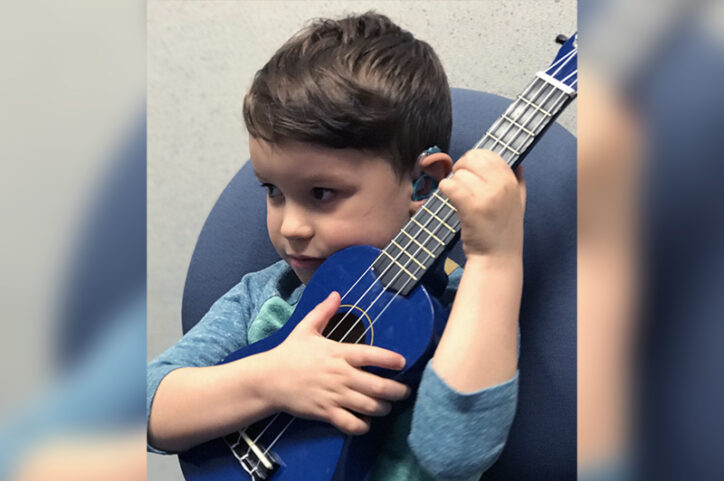
Figuring that out was far from straightforward. They brought Harry to a speech therapist who told them Harry had a lisp. (A speech-language pathologist later rejected that assessment.) A second speech therapist pointed out that Harry could follow complicated sentences but got confused by simple questions. Unlike struggling to communicate at pre-school, this didn’t fit into a recognizable pattern.
Finally, a friend suggested the Department of Otolaryngology and Communication Enhancement at Boston Children’s. “It was totally different,” says Giulia. “We had so many questions, and they took care of us.”
Puzzling out Harry’s hearing
Harry’s first hearing test indicated he had severe hearing loss. Still, it was strange that he knew so many words, more than a toddler with severe hearing loss would typically know. His Boston Children’s team thought his hearing loss might be caused by excess fluid in his middle ears and suggested ear tubes to drain the fluid out of Harry’s ears.
The ear tubes worked — to an extent. On the ride home from the procedure, Harry asked his mother about the sound of rain hitting the windshield, “like he was hearing it for the first time,” says Giulia. She traces his fascination with sound back to that car ride. In follow-up tests, however, his hearing remained far from ideal for a child his age.
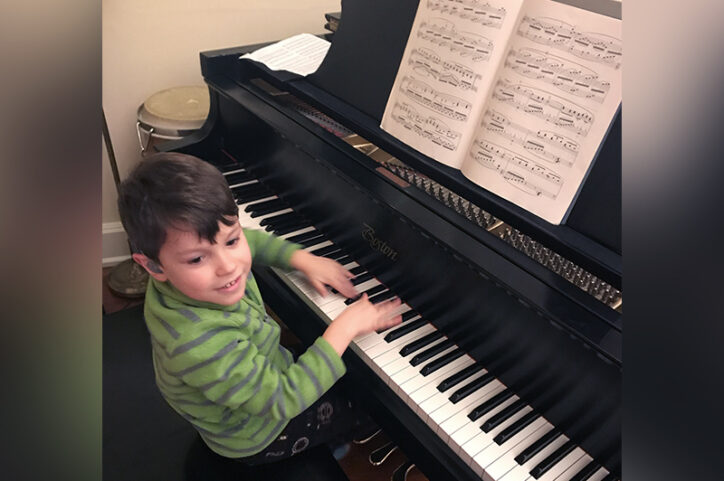
After more tests and a second procedure to drain fluid from his ears, otolaryngologist Dr. Margaret Kenna and audiologists Jane Liberman (now retired) and Amal Awdeh first diagnosed Harry with conductive hearing loss in both ears. In many cases, this type of hearing loss can be reversed. But Harry’s hearing had only partially improved after two ear-tube procedures. Over time, his hearing loss appeared to be more sensorineural, a type of hearing loss caused by problems with the inner ear or the way sound signals travel to the brain. Dr. Kenna suggested trying hearing aids.
Harry’s life with “super ears”
Harry was 4 when he got his hearing aids. (He picked blue ones to match his blue ukulele.) “It was a whole new world for him,” says Giulia. He had been going to speech therapy three times a week. Now, with hearing aids, he could hear soft sounds and more consonants, which helped him understand speech better. “He had so much more access to conversations and became much more social at preschool,” says Giulia.
Now 9, Harry is more than making up for his early years with limited access to sound. He’s learning to play the cello and adores music of all kinds. His love of K-pop inspired him to study Korean with the help of an online program. He also practices Italian with his grandmother, loves to write, and collects typewriters.
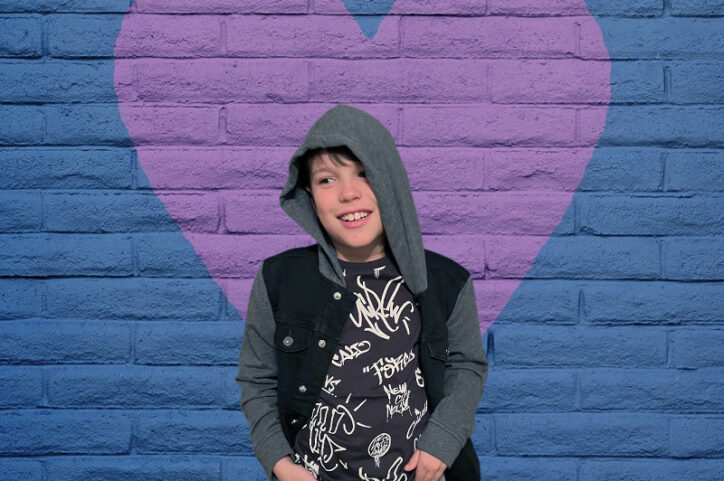
Meanwhile, he’s dipped his toes into the world of acting. In 2021, Harry landed a role in a Hasbro commercial that aired during the Thanksgiving Macy’s Parade. (He was proud that his blue hearing aids were visible in the commercial.) And when Tim Burton’s latest film comes out in 2024, his family will be watching for him among the extras in the movie.
Staying on top of hearing loss
Living with hearing loss means that Harry and his family need to stay on top of anything that could affect his hearing. He’s prone to ear infections and even a run-of-the-mill cold affects his hearing. At the first sign of a cold, Giulia rushes him to his PCP or an urgent care clinic.
Through it all, Harry’s Boston Children’s team has remained constant in his care. “Harry’s been seeing the same doctors for years,” says Giulia. “They’re involved and invested in his well-being. And they’ve supported us as well, making sure we have all our questions answered.”
Learn more about the Department of Otolaryngology and Communication Enhancement.
Related Posts :
-

Mark’s winning pass with cochlear implants
Mark Bradshaw wanted to break out of his parents’ protective shell — as many teens do when they start pushing for ...
-

Beyond expectations: Treating Isaac’s teratoma through an EXIT procedure
Jennifer worked as a hairdresser until just days before delivering her son, Isaac, last December, even though she had planned ...
-

Are cochlear implants an option for my child?
By providing access to sound, cochlear implants have made it possible for children with severe to profound hearing loss to ...
-

‘Empowered to be there for Teagan’: New parents learn about hearing loss
Teagan O’Brien is a bright, spunky 4-year-old who loves reading, dancing, and playing outdoors. Her parents, Kim and Donnie, ...



